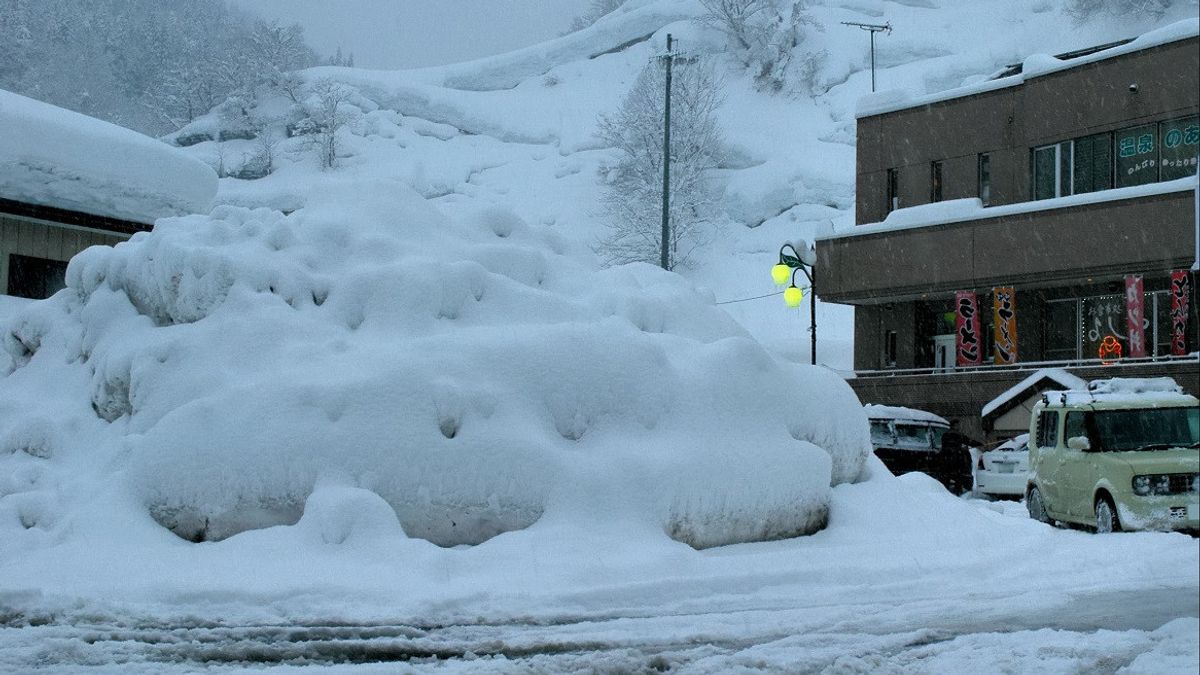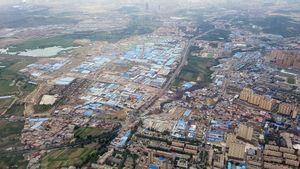JAKARTA - Heavy snow continued to hit areas on the coast of the Sea of Japan from north to west on Monday, with many vehicles stranded, air and rail traffic disrupted and several cities in western Japan experiencing record snowfall due to a pattern of strong winter stress.
The snow pile reached 68 centimeters in Hikone, Shiga Prefecture. While Hyogo Prefecture snowed 71 centimeters in the 24-hour period to Monday morning, the two were the most since such statistics began to be compiled, the Japan Meteorological Agency said, citing Kyodo News December 27.
The agency warned heavy snowfall and ice-covered roads with high waves could continue into Tuesday, as well as warning of possible lightning and strong winds due to extremely unstable atmospheric conditions in some places.
Elsewhere, the deepest snowfall was recorded in Aomori in northeastern Aomori prefecture with a height of 190 centimeters, while snow also piled up in the cities of Kyoto, Nagoya and Hiroshima.
As of Monday afternoon, a total of four people were injured in last weekend's blizzard, including two people with serious injuries related to snow clearing work.

A vehicle hit another car from behind at around 06:30 a.m. on the Maizuru-Wakasa Expressway in Kyoto Prefecture, western Japan, while a truck waiting for the crash to be cleared got stuck in the snow, causing a traffic jam of about 20 vehicles.
Meanwhile, the highway operator, West Nippon Expressway Co., closed the exit and entry lanes of the freeway until it snowed. The motorway reopens completely after noon.
On the National Route 8 section of Hikone, a large truck got stuck just before dawn. The incident had caused traffic flow back about two kilometers.
Separately, a 44-year-old man was stranded near Toyosato on his way to work in Hikone after encountering another stranded vehicle. "I haven't moved in four hours", he said.
Locals are seen in the morning clearing snow from the road on the Toyosato section of the highway. One of them, a 47-year-old man, said about 60cm had accumulated by the morning. "It's been a long time since I've seen this much snow."

Not only that, the snow also caused the closure of several other major transportation networks such as the Meishin Expressway which connects the Nagoya and Kobe metro areas.
Likewise, flights in and out of the coastline of the Sea of Japan and the northern island of Hokkaido were also cancelled, while train services were also disrupted.
Heavy snow also caused the Tokaido Shinkansen Line that runs between Tokyo and Osaka to operate at a slower speed.
SEE ALSO:
Meanwhile, a car is stuck at a railroad crossing on the Biwako West Japan Railway Co. around 12:20 a.m. Monday, causing seven rail lines including a special express service to experience delays of up to four hours.
The rail company also suspended service on Monday for 52 limited express trains, including those connecting to cities such as Kyoto, Nagoya and Kanazawa.
The English, Chinese, Japanese, Arabic, and French versions are automatically generated by the AI. So there may still be inaccuracies in translating, please always see Indonesian as our main language. (system supported by DigitalSiber.id)


















